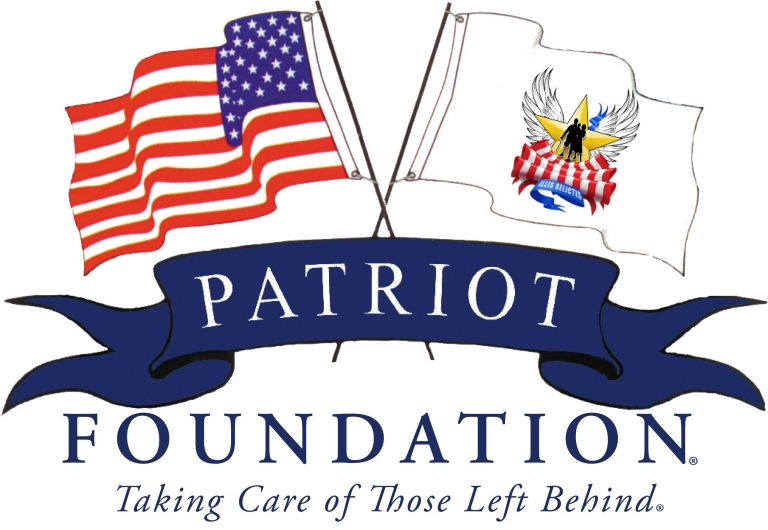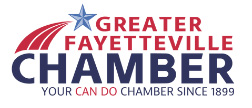frequently asked questions
General Scholarship Programs & Application FAQs
The Recovery program is funded through the American Rescue Plan, administered by the NC State Legislature, to assist with relieving the impact of the COVID-19 pandemic. The Star program is made possible through the annual funds from the NC State Legislature. Both programs are designed to assist NC military and veteran families attend NC post-secondary institutions. The two programs have the same eligibility requirements, except the Recovery program has specific income criteria.
Use the single application provided by Patriot Foundation to apply for the two scholarship programs. The eligibility of the applicant will determine the scholarship program for which the applicant will be considered. Click HERE to apply.
Applicants can only receive funding from one of the programs. The information provided by the applicant in his/her application will determine which program for which he/she will be considered. The Recovery program has specific income criteria that must be met. If an applicant’s household income exceeds the limit for the Recovery program, then the applicant can be considered for the Star program.
To be eligible for one of our scholarships, the school must be a post-secondary institution located in North Carolina. Eligible institutions would include one of the following:
- A constituent institution of The University of North Carolina.
- A community college under the jurisdiction of the State Board of Community Colleges.
- A junior college, senior college, or university that meets all the following requirements:
- Is operated and governed by private interests not under the control of the federal government, the State, or any local government.
- Has a main permanent campus, as defined in G.S. 116-280(4), located within the State of North Carolina.
- Does not operate for profit.
- The curriculum is primarily directed toward the awarding of associate, baccalaureate, or graduate degrees.
- Meets one of the following requirements:
- Is a private educational institution as defined in G.S. 143B-1224.
- Is accredited by an accrediting agency that is recognized by the United States Department of Education as a reliable authority concerning the quality of education or training offered by institutions of higher education.
- A private vocational institution, including Federal Aviation Administration certificated aviation training programs.
Post-secondary education includes universities and colleges, as well as trade and vocational schools.
Eligible institutions would include any of the following:
- A constituent institution of The University of North Carolina.
- A community college under the jurisdiction of the State Board of Community Colleges.
- A junior college, senior college, or university that meets all the following requirements:
- Is operated and governed by private interests not under the control of the federal government, the State, or any local government.
- Has a main permanent campus, as defined in G.S. 116-280(4), located within the State of North Carolina.
- Does not operate for profit.
- The curriculum is primarily directed toward the awarding of associate, baccalaureate, or graduate degrees.
- Meets one of the following requirements:
- Is a private educational institution as defined in G.S. 143B-1224.
- Is accredited by an accrediting agency that is recognized by the United States Department of Education as a reliable authority concerning the quality of education or training offered by institutions of higher education.
- A private vocational institution, including Federal Aviation Administration certificated aviation training programs.
Individuals in two-year, four-year, graduate, and doctoral programs can be eligible for scholarship assistance.
No, you do not have to be a full-time student. However, you do have to be at least half-time in your program to be eligible. If you are unsure of the number of credit hours that qualify as half-time, verify this information with your school’s Registrar’s Office or with a representative from your degree program.
No. Scholarships are only awarded for Fall and Spring terms. Application cycles will be for full academic years, or Spring terms only.
Federal Law requires nearly all male US citizens and male immigrants, 18 through 25, register with Selective Service. Learn more (https://www.sss.gov/).
If you are male and not yet 18 years of age at the time you apply for our scholarship programs, then you will not be required to submit documentation of Selective Service registration. However, once you turn 18, you will be asked to submit registration documentation.
Yes, eligible children cannot have reached 26 years of age by a specified date related to the application cycle. Please see the application for the specific date.
If the service member/veteran is living and not currently residing in North Carolina, then the eligibility criteria is not met. The service member/veteran must meet one of the following residency criteria:
- Service member is a (current) legal resident of NC
- Service member was a legal resident of NC upon entrance to the armed forces.
- Service member was stationed in NC at the time of their death.
- Active duty-service member is permanently stationed in NC (for children applicants only)
One of the two scholarship programs, the Recovery program, has eligibility criteria related to the applicant’s household income. For the Recovery program, the applicant’s household income cannot exceed 350% of the federal poverty level. To determine eligibility for this program, tax income information must be reviewed. If the applicant exceeds the income criteria for the Recovery program, the applicant can be considered for the Star program which does not have any income restrictions.
Eligibility for the Recovery program includes that the applicant’s household income cannot exceed 350% of the federal poverty level. (Note: If an applicant meets all other eligibility requirements but does not meet the income requirement for the Recovery program, then the applicant can be considered for the Star program.)
The Patriot Foundation uses the U.S. Federal Poverty Guidelines made available by the U.S. Department of Health and Human Services to determine a household’s income level for the Recovery scholarship program. Guidelines are updated each year.
Click HERE to view the 2024 federal poverty guidelines chart.
The applicant must present the tax information for the household(s) with which they either file themselves or are claimed as a dependent.
If you file taxes independently, then you will be asked to submit your individual tax forms. If your parent(s) also claim you as a dependent child, then you will need to also submit a copy of your parent(s) tax return.
The NC Patriot Star Family Scholarship Programs support service members/veterans and their dependents from ALL branches of the armed services.
Recipients of the Recovery Scholarship can be awarded up to $6,500.00 per semester. Recipients of the Star Scholarship can be awarded up to $3,250.00 per semester. Because of the need-based component of the Recovery Scholarship, applicants can receive a larger scholarship award amount.
Applicants will be notified of their scholarship award once the application cycle has closed, by the beginning of June for the fall semester and the beginning of November for the Spring semester. Initial award notifications will be sent out via email.
Funds for both programs can be applied up to the cost of attendance (COA). Applicants must have qualifying expenses not met by other grants, stipends, or scholarships. COA is the amount it will cost a student to go to school. Schools will calculate the COA for a program, so the COA can vary by school, program, etc. Check with your school’s Financial Aid Office to learn more about the COA for your program. If you’re attending school at least half-time, the COA is the estimate of tuition and fees, cost of room and board (or living expenses), cost of books, supplies, transportation, loan fees, and miscellaneous expenses (including a reasonable amount for the documented cost of a personal computer), allowance for childcare or other dependent care, costs related to a disability, and reasonable costs for eligible study-abroad programs (Office of US Department of Education). If your scholarship exceeds your balance on your student account, extra funds can go towards living expenses, books, etc., as long as the total amount of all grants, stipends, and scholarships does not exceed the COA for your program.
FAQ for Scholarship Recipients
Scholarship awards will be sent directly to the institution where the student recipient is attending, based on the information provided in the scholarship application.
Patriot Foundation contracts with a third-party fiscal agent, the NC State Education Assistance Authority, to facilitate the distribution of awards to institutions.
Funds for both programs can be applied up to the cost of attendance (COA). Applicants must have qualifying expenses not met by other grants, stipends, or scholarships. COA is the amount it will cost a student to go to school. Schools will calculate the COA for a program, so the COA can vary by school, program, etc. Check with your school’s Financial Aid Office to learn more about the COA for your program. If you’re attending school at least half-time, the COA is the estimate of tuition and fees, cost of room and board (or living expenses), cost of books, supplies, transportation, loan fees, and miscellaneous expenses (including a reasonable amount for the documented cost of a personal computer), allowance for childcare or other dependent care, costs related to a disability, and reasonable costs for eligible study-abroad programs (Office of US Department of Education). If your scholarship exceeds your balance on your student account, extra funds can go towards living expenses, books, etc., as long as the total amount of all grants, stipends, and scholarships does not exceed the COA for your program.
The timeline can vary based on the student and institution. Once awards decisions are made, Patriot Foundation works with the NC State Education Assistance Authority (NCSEAA), which distributes the awards to institutions. The process of certification between NCSEAA and the individual institutions may take several weeks. NCSEAA will notify each school of the award recipient(s). The school must certify that the student is enrolled, and is at least half-time status within their program, and must approve that the award amount does not exceed the cost of attendance. Once an award is certified by the school, NCSEAA will disburse funds to the school. The school then must apply the funds to a student’s account. We recommend you speak with your school’s Financial Aid Office regarding application of funds to your account. Recipients can also view the status of their awards through the NCSEAA portal. Information on how to create an account through the NCSEAA portal are sent by NCSEAA.
Any funds that exceed the cost of attendance after applying all other grants, stipends, and scholarships must be returned by the school to Patriot Foundation, by way of NCSEAA.
If scholarship checks were sent directly to the institution by Patriot Foundation, then the institution will need to return the funds directly to Patriot Foundation via check. Returned checks can be sent to:
Patriot Foundation
PO Box 5069
Pinehurst, NC 28374
The funds awarded must be returned by the school to Patriot Foundation. If funds were awarded through NCSEAA, then returns will be returned through NCSEAA. If scholarship checks were sent directly to the institution by Patriot Foundation, then the institution will need to return the funds directly to Patriot Foundation via check. Returned checks can be sent to:
Patriot Foundation
PO Box 5069
Pinehurst, NC 28374
As long as your scholarship award, when combined with all other grants, stipends, and scholarships, does not exceed the cost of attendance, the overage on your account can be returned to you, by your school, and be used to assist with cost of living, books, transportation, etc. You must work with your school’s Business Office/Bursar’s Office/Cashier’s Office to facilitate this process. Patriot Foundation is not involved with this part of the process.
It is Patriot Foundation’s goal to follow students through their degree programs; however, recipients must re-apply for scholarship assistance for new academic years. Instructions to complete renewal applications will be sent out to recipients prior to each renewal cycle.
ADDITIONAL QUESTIONS?
Please contact the Scholarship Administrator with additional questions.
Scholarship Administrator
sc**********@pa***************.org

